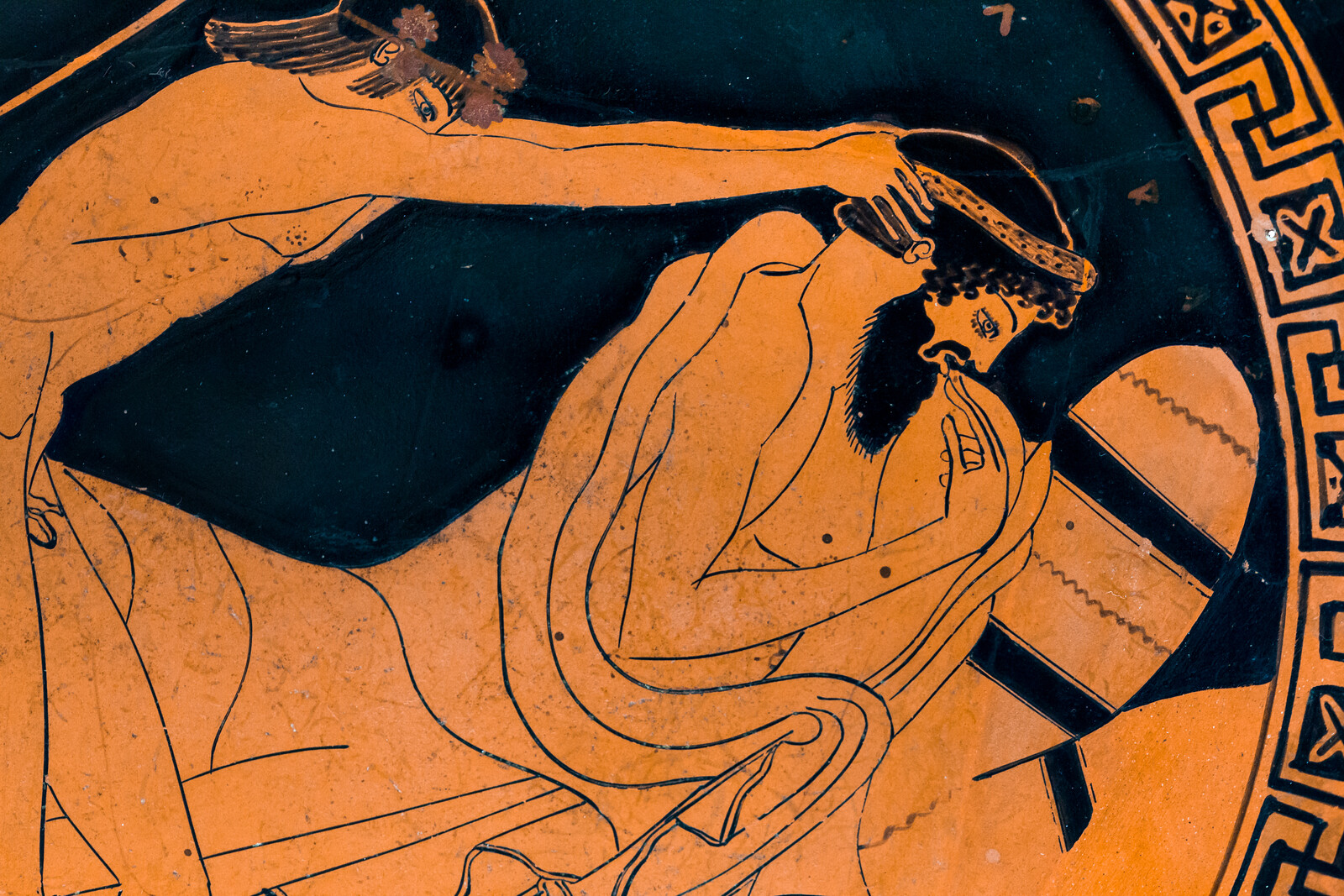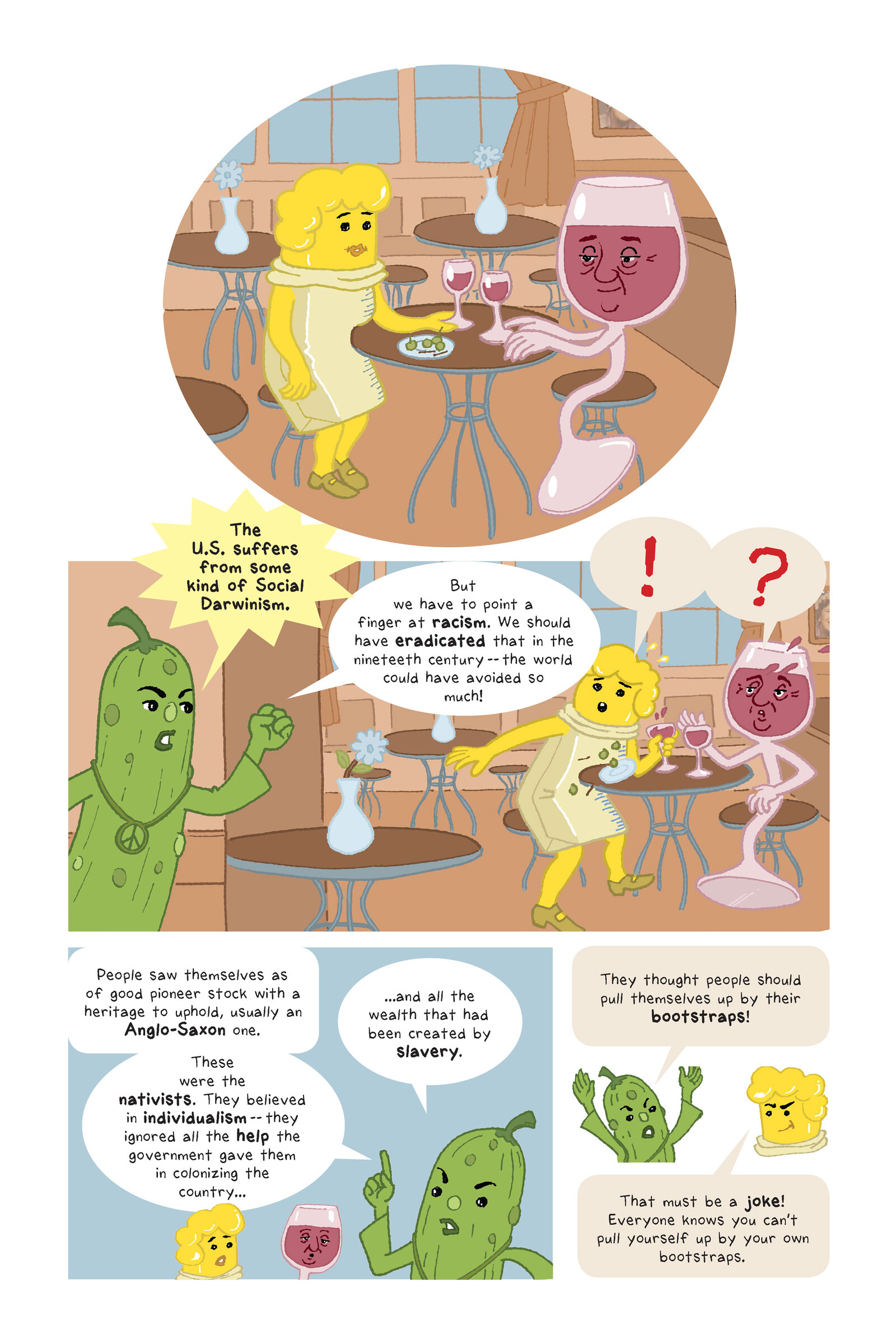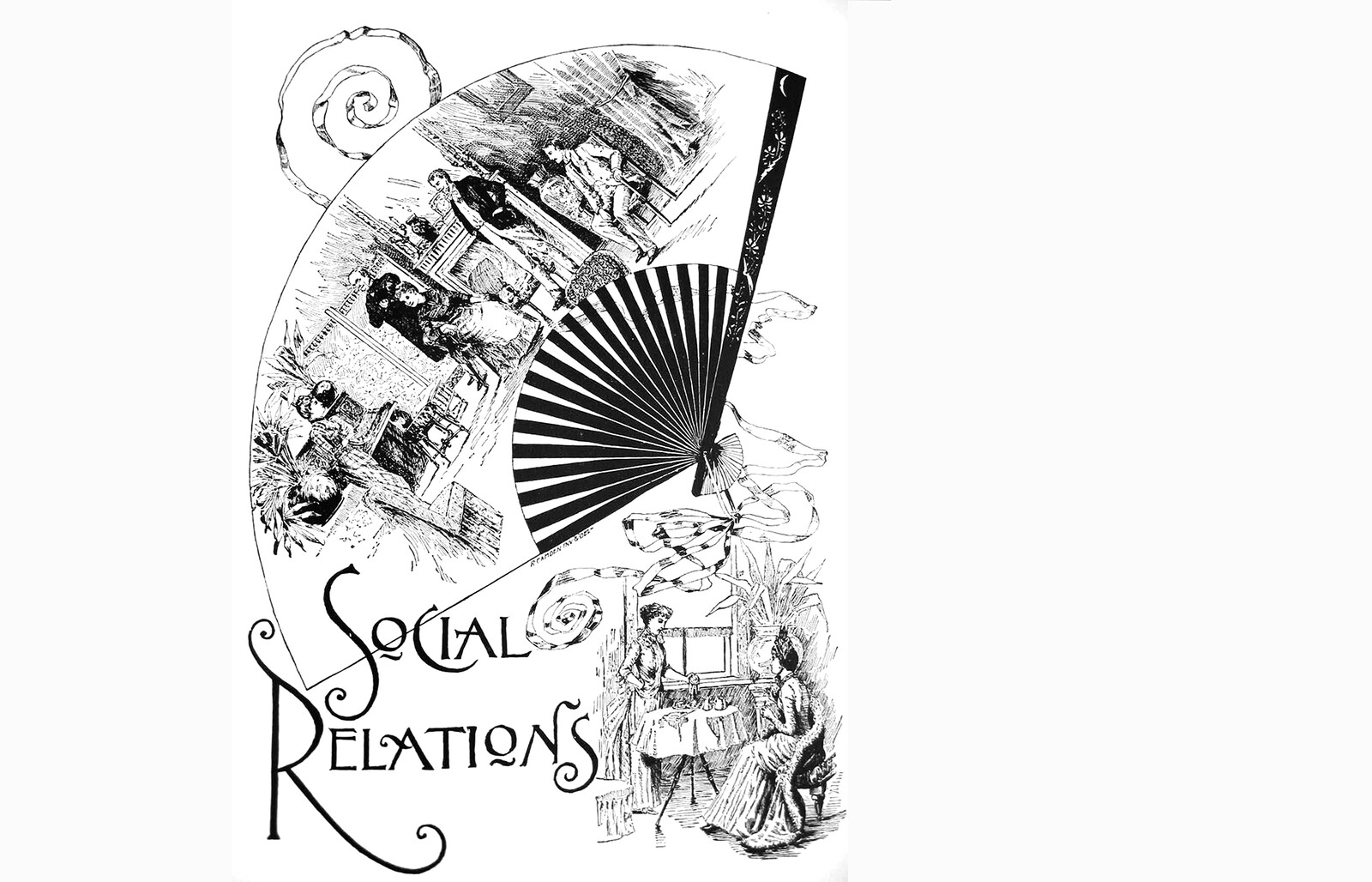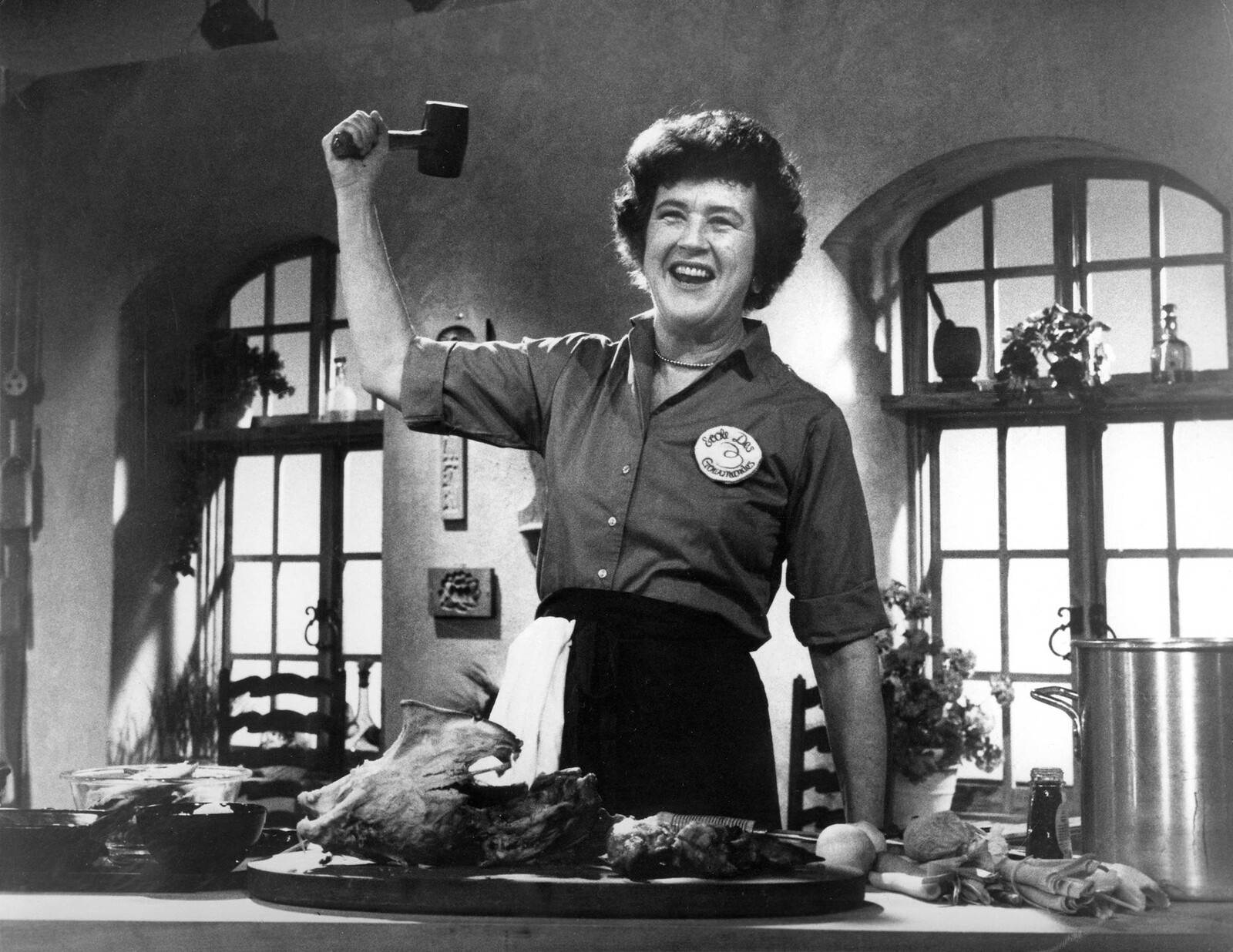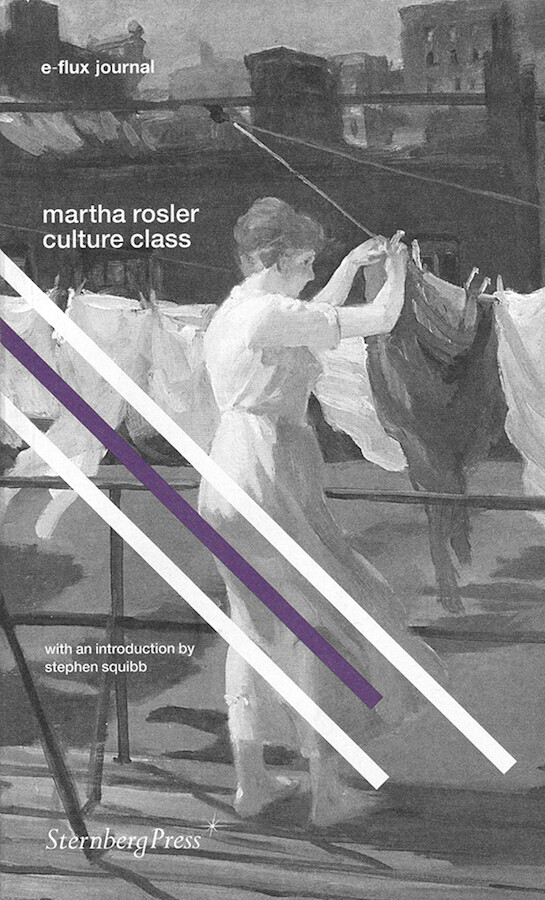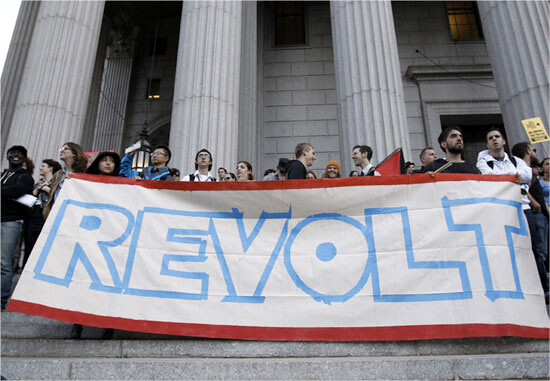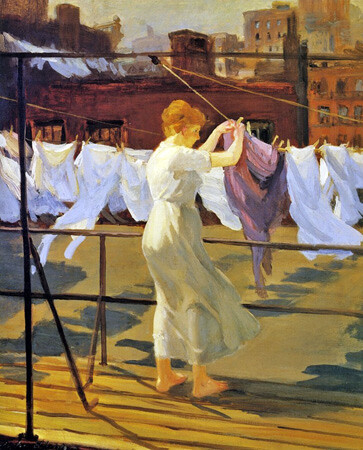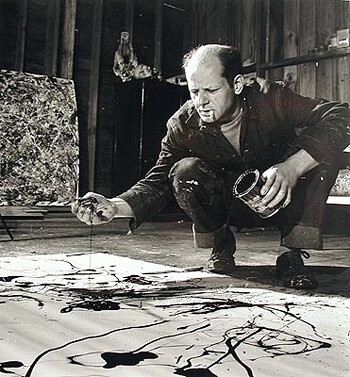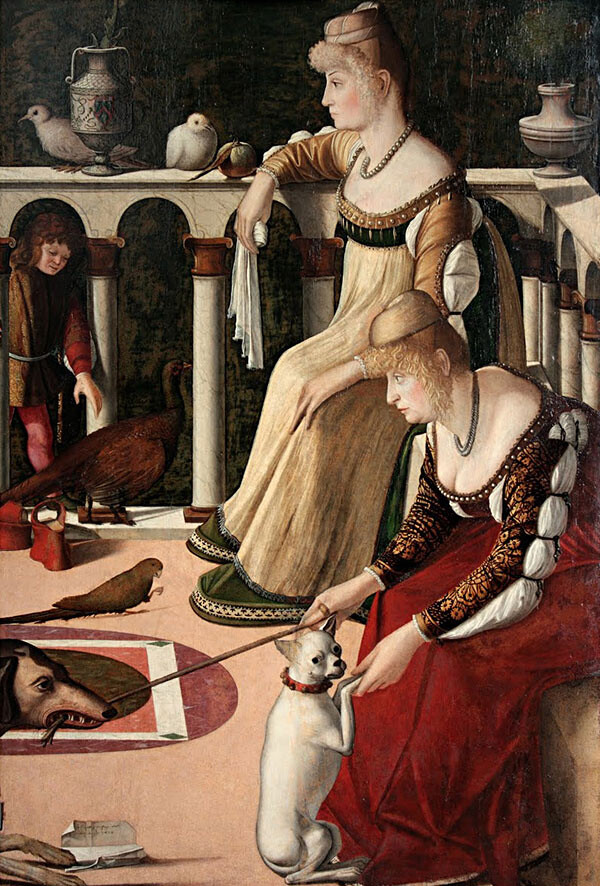Julia Child: Again we see that leaving behind nature in favor of culture, or “civilization,” is seen as basic to the definition of an art. But it seems especially necessary for ingestion, which otherwise is inarguably about materiality, and even need.
Josh Neufeld and I have worked on this comic off and on for about a year, and its topicality and resonance have varied as we did so. In the run-up to publication, when hoarding and price gouging scarred the coronavirus pandemic response, the comic, as already written, seemed to pitch itself in one direction. But as we are about to go to press, with the comic still unchanged, a different question of justice is at stake: people’s right to demand justice and equal treatment as well as equal access to social goods under the law in every aspect of life. No justice, no peace.
The art world is perhaps a special case. Artists—despite canned Facebook congratulations and condolences related to progeny, parents, and pets—may not be invested professionally in cultivating niceness. Some curators and many art historians seem to duck online niceness in favor of an archly distant dignity. But much of the institutional apparatus in charge of distribution, circulation, publicity, and sales is on a long-term charm offensive. The experience economy, like the closely related caring economy, demands a public-relations approach. A very high proportion of museum and gallery staff, those who must communicate with people both inside and outside the institution, are, like the very high proportion of public-relations workers, women—a “pink-collar ghetto”—with all the prejudices that still calls forth.
With the market pressing in on one side and near-poverty on the other, how might artists’ long-standing tendency to identify not with their patrons but rather with the relatively voiceless in society be expressed or suppressed?

